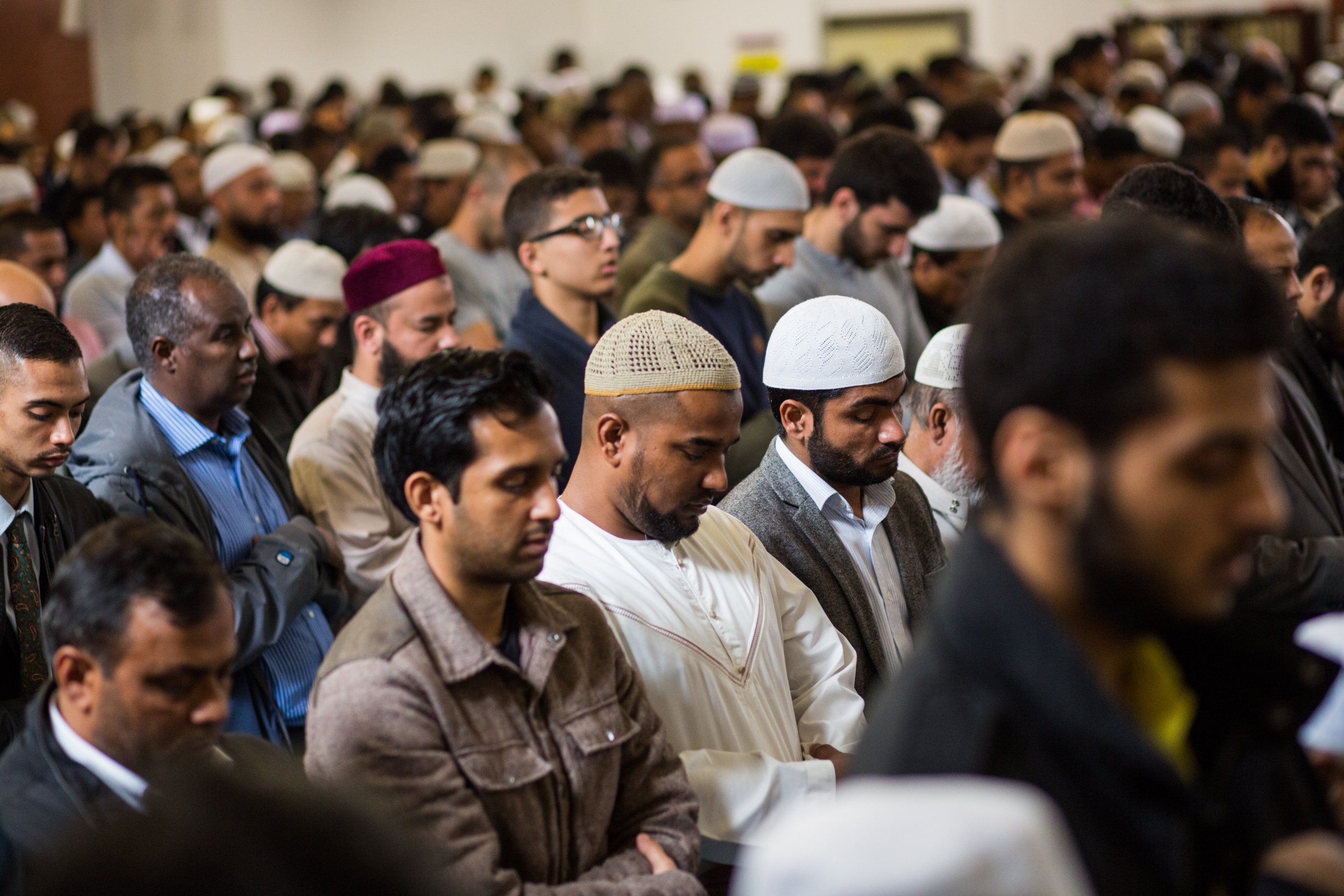
In a chintzy banqueting hall in Wembley, London, soft boos punctuate the loud chatter. A 300-person strong crowd, ranging from an Anglican vicar to former Guantanamo Bay detainee Moazzam Begg, have gathered for the third iteration of the satirical Islamophobia Awards. The crowd’s tepid response to the announcement that British Prime Minister David Cameron has won the U.K. category for Islamophobe of the year is explained partly by the distraction of dinner at the event organizers like to call ‘the racism awards.’
Saturday’s event, held by the U.K.-based Islamic Human Rights Council (IHRC), is one of the many initiatives aimed at spreading awareness of Islamophobia, which is on the rise in the U.K.. London’s police saw a 60% rise in Islamophobic offences in 2015, from 667 offences recorded in 2014. Tell MAMA, an organisation that monitors Islamophobia, counted around 2,500 incidents for the whole of the U.K., but believes the number may be in the tens of thousands as studies have shown that the majority of hate crimes go unreported.
Fiyaz Mughal, who heads Tell MAMA, believes that the Islamophobia Awards, “trivializes” what should be a serious matter. “Some people may not like what the Prime Minister does but this is not the way to deal with it. These are senior political members of our country and our job is to lobby them, our job is to speak to them and give them the facts and hopefully build better, cohesive societies” he says. “Our job is not to mock them and by doing so create a ‘them and us.’” His organization has been working with police forces around the country to help collate data that will, hopefully, inform future policy on Islamophobia.
The police have taken steps to bring awareness to the issue: in 2015, David Cameron announced that anti-Muslim hate crimes, which had previously not been distinguished from wider hate crimes, would be recorded in their own separate category. Chief Superintendent Dave Stringer of London’s Metropolitan Police says they are working on raising awareness around Islamophobia with young Muslims, who tend to shy from reporting anything to the police. “We have a large number of schools officers and their role is to engage with young people” he says. “I would argue it has resulted in an increase in hate crime reports.”
According to Miqdaad Versi, spokesperson for the Muslim Council of Britain (MCB), Islamophobic attacks can range from “verbal assaults and attacks on social media on the lower end… to a more violent situations and attacks on mosques.” In February, the MCB, one of the country’s biggest umbrella groups for Muslim organisations, organised ‘Visit my Mosque Day,’ which saw thousands of people visit some 80 mosques across the country. The day was organized with the aim to allow Muslims “explain their faith and community beyond the hostile headlines.” Positive and high-profile campaigns like that is what works says Miqdaad, by demystifying the other side and nurturing social acceptance among communities.
Versi believes that strong leadership from public personalities is also needed to publicize the issues of Islamophobia. He describes the controversy surrounding the contentious headline published by the Times of London on Feb. 20, which read: ‘Imam beaten to death in sex grooming town.’ More than 400 complaints were made over what was seen as the paper conflating the faith of the now deceased Jalal Uddin with the town’s past child abuse scandals, reports the Guardian. In response, Manchester’s police Force, Ian Hopkins, wrote a public letter to the Times demanding an immediate apology for offending “the thousands of peaceful, law-abiding Muslims and non-Muslims living in Rochdale.”
“It was fantastic he did that. It demonstrated leadership from him” says Versi, citing the 2014 roundtable discussion about Islamophobia in Europe held by the Swedish government, which concluded that Islamophobic rhetoric is spread when the media makes regular associations of Islam and Muslims with crime and terror.
The MCB declined to comment on the Islamophobia Awards, but opinion on whether the event helps or hinders efforts to tackle the problem is clearly divided. Yet the show’s organizers point to comments such as those made by Donald Trump, the eventual winner of the ‘Islamophobe of the year’ title, to illustrate the need to focus attention on the issue. “It is important for you to enjoy yourselves as we make a serious point” says Massoud Shadjareh, the director of IHRC. “We are allowing this environment of hate to exist… where it is becoming socially acceptable to say those things about Muslims.”
More Must-Reads from TIME
- How Donald Trump Won
- The Best Inventions of 2024
- Why Sleep Is the Key to Living Longer
- Robert Zemeckis Just Wants to Move You
- How to Break 8 Toxic Communication Habits
- Nicola Coughlan Bet on Herself—And Won
- Why Vinegar Is So Good for You
- Meet TIME's Newest Class of Next Generation Leaders
Contact us at letters@time.com